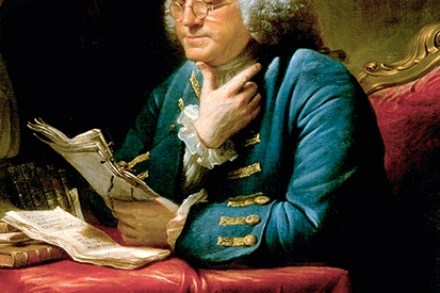A leap in the dark
The first and most important thing to say about The Drowned Detective is that it’s a very good novel and (which is not always the same thing) a pleasure to read. After that, it gets more complicated. The book defies tidy categorisation. Set in a nameless eastern European country, it opens in the literary territory of the crime thriller, with private investigators on the trail of a government minister on the way to visit his rubber-clad mistress. One of them, the narrator Jonathan, is English. He’s furiously jealous of his employee Frank, a hunk who has had a fling with Sarah, Jonathan’s archaeologist wife. In another case, the parents of




















